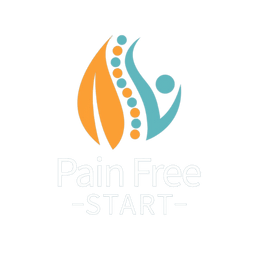Osteoarthritis (OA) of the knee is a prevalent issue affecting millions of people around the world. If you or someone you know is grappling with this condition, you’re not alone. In this blog, we’ll explore what OA of the knee is, effective management strategies, and how you can take proactive steps to improve your knee health.
What is OA of the Knee?
Osteoarthritis is a degenerative joint disease characterized by the breakdown of cartilage, which cushions the ends of the bones in the knee joint. As the cartilage deteriorates, it can lead to pain, stiffness, and reduced mobility. OA of the knee is the most common form of arthritis, and its prevalence increases with age—affecting nearly 50% of adults over 85.
Effective Strategies for Managing OA of the Knee
Managing OA of the knee doesn’t have to mean suffering in silence. Several proven strategies can help alleviate symptoms and improve quality of life:
1. Exercise: Move to Improve
Exercise is a highly effective non-surgical treatment for OA of the knee. It can help reduce pain, enhance function, and potentially delay the need for knee replacement surgery. Key exercises focus on strengthening the muscles around the knee and improving flexibility.
- Start Gradually: Begin with low-impact exercises such as swimming or cycling and gradually increase intensity.
- Structured Programs: Consider following a structured program like my Arthritic Knee Program, which includes a series of exercises designed to build strength and avoid exacerbating your symptoms.
Research supports this approach: A study in the Journal of the American Medical Association found that structured exercise programs significantly improve function and reduce pain in OA patients. For more details, check out my 5 Exercises to Avoid with an OA Knee blog.
Tip: Join my FREE masterclass on arthritic knees where I share 2 exercises to begin your strengthening journey. Click to find out more.
2. Weight Management: Lighten the Load
Maintaining a healthy weight is crucial for managing OA of the knee. Excess weight puts additional stress on the knee joint, which can speed up cartilage breakdown.
- Diet and Exercise: Implement a balanced diet and regular exercise routine to achieve and maintain a healthy weight.
- Resources: For more information on weight management, visit the NHS website.
- Helpful blog: What Role Does Weight Management Play in Reducing Knee Arthritis Symptoms?
A study published in Arthritis & Rheumatology found that weight loss through diet and exercise can significantly improve pain and function in OA patients.
3. Medications: Finding Relief
Several medications can help manage the symptoms of OA. Options include nonsteroidal anti-inflammatory drugs (NSAIDs), painkillers, and corticosteroid injections.
- Consult Professionals: Speak with your pharmacist or doctor to find the most effective medication for your symptoms.
- Injections: Corticosteroid injections have been shown to reduce pain and improve function, according to research in Osteoarthritis and Cartilage.

4. Ice & Heat: Which is best to use
As a general rule of thumb, your knee will benefit most from ice when your knee is sore and inflamed. Heat tends to be a better option for your everyday ache. Ice if angry and heat if achy.
Find out more in this blog; How Does Cold and Heat Therapy Help Relieve Knee Arthritis Pain?
5. Surgery: When Necessary
In severe cases of OA, surgical options may be required. Total Knee Replacement (TKR) is a common procedure, while Unicompartmental Knee Replacement (UKR) is an option if just a small section of the knee is arthritic it tends to be the inside in the majority of cases. Your surgeon will be the one to advise on the best one for you.
- TKR: TKR can significantly improve pain, function, and quality of life, as noted in The Journal of Bone & Joint Surgery.
- UKR: This less invasive option might be suitable if arthritis affects only one part of the knee.
TIP – For more insights on medical options – medication, injections and other forms of surgery, read my blog on Medical Treatments for Knee Arthritis.
Conclusion
Osteoarthritis of the knee is a common condition, but it doesn’t have to control your life. With the right strategies—such as exercise, weight management, medication, and possibly surgery—you can significantly improve your symptoms and quality of life.
If you’re struggling with knee arthritis, I’m here to help. Explore my Arthritic Knee Program or contact me for personalised advice and support.
Take control of your knee health today!
Take care, Helen
Helen Manders BSc (Hons) MCSP HCPC
Chartered Physiotherapist Treating Arthritic Knees Since 2001
P.S. I would love to see you in the FREE Masterclass it is a great way to start your journey to upgrading your knee. Start straight away and I hope to see you there. Click to learn more




